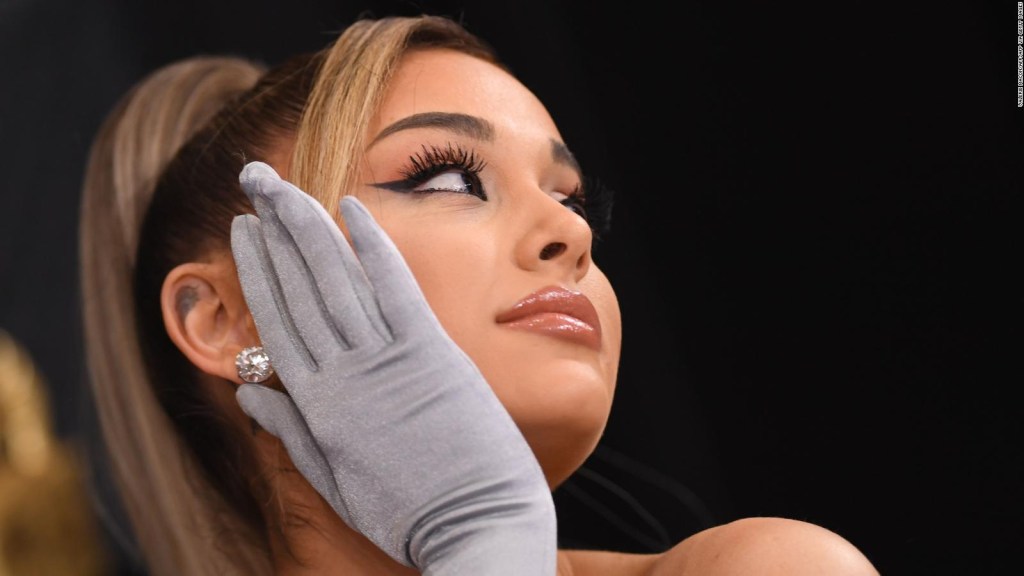Iggy Azalea in a screenshot from his new video, "I Am The Strip Club."
(CNN) -
First there was "blackface."
Now there is the "blackfishing".
The term has increasingly appeared in the news to describe the behavior of white artists who appear to be mimicking the appearance of blacks.
It is not a compliment.
The latest example is pop star Iggy Azalea, who has received criticism for her appearance in a new music video.
Here's a look at what
Blackfishing
is
and why people do it.
What is Blackfishing?
The term
blackfishing
rose to prominence in a Twitter thread two years ago when journalist Wanna Thompson said she noticed white celebrities and influencers dressing up as black women on social media.
"
Blackfishing
is when white public figures, influencers and the like do everything in their power to appear black," Thompson told CNN this week.
"Whether that means excessively tanning your skin in an attempt to achieve ambiguity, and wearing hairstyles and clothing trends that have pioneered black women."
advertising
"Blackface": this is why painting your face black is offensive
Critics have described it as a form of
blackface
(an expression used to refer to when someone paints their face black to look like someone of another race, something considered offensive), saying that this creates a dangerous paradox as it celebrates beauty and black aesthetics, but only when white highlights.
"Instead of appreciating black culture from the outside, there is a need to own it, to inadvertently participate in the full experience of blackness and the systemic discrimination that goes with it," Thompson said.
Who has been accused of it?
The latest
blackfishing
headlines
involve Azalea, the Australian hip hop star who has been accused of appropriating black culture since her career took off a decade ago.
Blonde Azalea wears a dark wig in the music video for her new single, "I Am the Strip Club."
Critics on social media noted that in the video her skin appears to be darker than usual, but she dismissed it.
"I'm the same color as always, just in a dimly lit room with red lights," he said.
CNN has reached out to Azalea representatives for additional comment.
Kim Kardashian is also not immune to such criticism.
In 2017, before the word
blackfishing came along
, she featured Jacqueline Kennedy Onassis for a photoshoot that some say made Kardashian look darker than usual.
Mexico accuses Zara, Anthropologie and Patowl of & # 039; cultural appropriation & # 039;
Around the same time, critics also accused her of sporting
blackface
in a series of advertisements for her makeup line.
"Obviously, I would never want to offend anyone," Kardashian, who is of Armenian descent, said of the photoshoot.
"I used an amazing photographer and a team of people. I was very tanned when we took the pictures, and the contrast might not be right."
Singer Ariana Grande, whose heritage is Italian, faced a similar backlash in 2019 for a Vogue cover in which some said her skin appeared darker.
And Bruno Mars has defended himself against accusations that he appropriates black culture in his music and appearance.
In 2018, writer and activist Seren Sensei said that Mars "takes advantage of his racial ambiguity to cross genders."
Mars, who was born to a Filipino mother and a half-Puerto Rican, half-Jewish father, responded that "You can't find an interview where I haven't talked about the artists who have gone before me. The only reason I'm here is because James Brown, Prince, Michael ".
Why do people do it?
When social media artists or influencers appear to be mixed race or racially ambiguous, it can create marketing opportunities for them because they are considered stylish and exotic, experts say.
Some people who participate in
blackfishing
feel entitled to black culture and use it for social currency and monetary gain, Thompson said.
But it works against the prejudice of black people, who may not be seen in the same way despite having similar natural characteristics.
Leslie Bow, a professor of Asian American studies at the University of Wisconsin, describes
blackfishing
as "a racial sham that operates as a form of racial fetishism."
Bow said there is a specific power dynamic in American society that implies that aspects of racial culture must be validated by those with status in order to be considered positive or valuable.
"You might think that it works as a tribute because it seems to honor the black style. In this case, they are based on what academics have called the
aesthetic du cool
that accompanies black culture," Bow said in an email.
"In reality,
blackfishing
positions that style as a commodity. It has the effect of reducing a people with a specific history to a series of appropriate traits or objects," he added.
"
Blackfishing
is a form of racist love, how we appropriate otherness."
How is it different from cultural appropriation?
The
blackfishing
and cultural appropriation are interconnected: you can not have one without the other, Thompson said.
Cultural appropriation, according to the Cambridge Dictionary, is "the act of taking or using things from a culture other than your own, especially without showing that you understand or respect this culture."
For example, numerous white celebrities have been criticized for wearing their hair in box braids or dreadlocks, styles traditionally worn by blacks.
Feminist writer and speaker Jones has described cultural appropriation as when people with power and privilege take customs and traditions for which oppressed people have long been marginalized and reuse them as hot new.
"People have no respect for black culture; they think it is available, and they will take it and participate in it and exploit it because it has been commercialized," Thompson said.
"We see this on all social apps, but increasingly on TikTok."
But when people change their appearance with makeup, cosmetic surgery, or digital editing to look black, it goes a step beyond cultural appropriation.
It is
blackfishing
.

